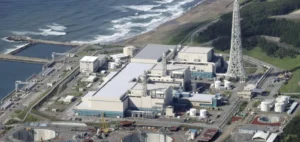Niger has officially invited Russian companies to invest in the exploration and exploitation of its natural resources, announced Ousmane Abarchi, Niger’s Minister of Mines, in an interview with the Russian state agency Ria Novosti. This initiative comes amid tense relations with Western actors, particularly France.
According to the minister, several Russian companies have already expressed interest in intervening in various extraction sectors, extending beyond uranium. “We have invited them to come to Niger within this framework,” he stated, emphasizing that this cooperation could diversify the country’s economic partnerships.
A conflict with French companies
Relations between Niger and French companies, particularly Orano, a uranium specialist, have been deteriorating for several months. Niamey has expressed dissatisfaction with Orano’s suspension of production activities at the end of October. This decision followed the Nigerien government’s withdrawal of the exploitation permit for the Imouraren site, one of the largest uranium deposits in the world, in June.
Ousmane Abarchi criticized France and its companies’ positions: “Does it seem conceivable to you that we, the State of Niger, would accept that French companies continue to exploit our natural resources under such circumstances?”
A new geopolitical orientation
Since the military coup in July 2023, Niger has adopted a more assertive stance on national sovereignty, distancing itself from the West in favor of new alliances. The current authorities have reiterated their intention to review the terms of resource exploitation by foreign companies.
Russia is emerging as one of Niger’s preferred partners in this new strategy. In parallel, discussions are also underway with Iran, reflecting a desire to diversify foreign investments.
An intricate economic and security context
Economic tensions over natural resource exploitation are compounded by a delicate security situation. The closure of Niger’s border with Benin, justified by security concerns, further complicates uranium exports, a major issue for the country.
Facing these challenges, the Nigerien government aims to ensure greater control over its resources while opening the door to new actors who can contribute to its economic and energy development.






















